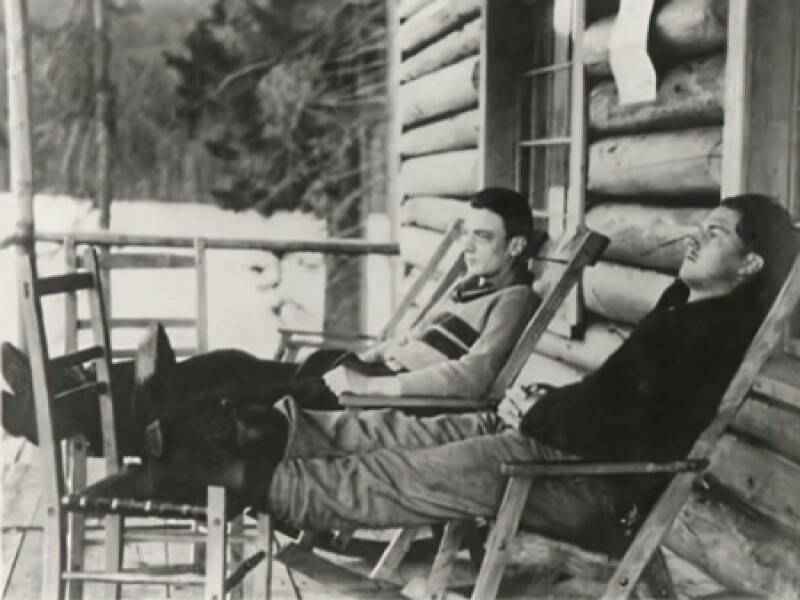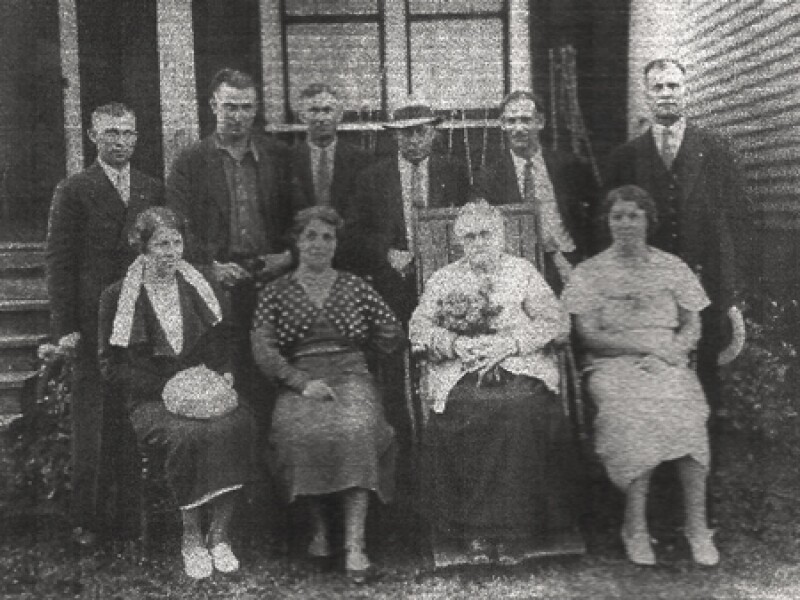1931 Census of Canada—It's Here!
This collection of records shows the details of over 10 million people living in Canada in 1931. Library and Archives Canada completed this project in collaboration with FamilySearch and Ancestry.
Search the 1931 Canada Census on FamilySearch today.

What Can I Find in the 1931 Census?
40 questions were asked in the 7th Census of Canada (though the Northwest territories had only 17 questions). Each one answered can tell you a little more about your ancestors.

Names and Family Structure
Learn the names of the people in a residence or "household" and how they are related to one another.
A Look at the Stats...
- The population in Canada in 1931 was 10,376,786.
- The average size of a Canadian family was between 4 and 5 individuals.
- Nearly 10% of the population were not attached to any family.
- Single women and widowed females were often found to be responsible for children under guardianship or other dependents, even when they had no children of their own in their home.

Housing
Learn what kind of dwelling people lived in and whether they owned or rented.
A Look at the Stats...
- Around 89% of lodgers in 1931 were rooming in private homes, instead of hotels and rooming houses.
- 99% of households were living in an "ordinary household." Less than 1% lived in hotels, rooming houses, institutions, or camps, tents, and so on.
- Around 55% of those living in an ordinary household owned their home, with 34% being tenants and 9% listed as lodgers or lodging families.

Age and Sex
Learn how old someone was in June of 1931, when the 7th Census of Canada was taken. This can help approximate a birth year for that person.
A Look at the Stats...
- Around 32% of the population were children under the age of 10.
- Around 63% were of working age, including ages 14 through 64.
- The elderly made up about 6% of the population, with 0% over the age of 100.
- About 38% of both males and females were married at the time of the 1931 census. 40–44.6% had been married at one time.

Birthplace and Immigration
Learn where people were born, by country or province. You might also find their year of immigration, racial origin, nationality, mother tongue, and the nationality of their parents.
A Look at the Stats...
- 22% of Canadians had been born in another country, and 34% of adults (over 19).
- Many were born in the British Isles. Others came (in order of highest) from Europe, the United States, and Asia.
- Significant European birthplaces included Central Europe; Russia, Lithuania, and Ukraine; Scandinavia, Italy, Germany, and Finland.
- 70% of Canadians lived in the same Province they were born in.

Education
Learn what languages someone spoke, whether they were literate (could read or write), and whether or not they attended school.
A Look at the Stats...
- 3.8% of Canadians over the age of 10 could not read or write.
- More than half of those who were illiterate were over the age of 45.
- More males were reported as illiterate than females, possibly due to a higher population of females in urban areas and other factors.
- Just under 66% of Canadians from age 5–19 were attending school. For the ages 7–14, however, a full 80% or more were attending.

Religion
Learn what religious denominations a person identified with.
A Look at the Stats...
- The principal religious denominations in Canada were
- Roman Catholic (41%)
- United, Presbyterian, Methodist, and Congregational (28%)
- Anglican (16%)
- Baptist (4%)
- Lutheran (4%)
- Jewish (2%)

Occupation and Unemployment
Learn what someone did for work and whether or not they were employed during this part of the Great Depression. The census might even tell you how much they earned.
A Look at the Stats...
- More than a third of the population over 10 years old was gainfully occupied (earning money or producing marketable goods).
- Around 70% of those gainfully occupied were between 25 and 69 years of age.
- Most common occupations for males: Agriculture (34%), labourer (13%), manufacturing (11%), commercial (8%), transportation (7.6%), building and construction (6.2%).
- Most common occupations for females: Domestic servants (20.1%), teachers (9.8%), typists (9.8%), nurses (4.8%, matrons and stewards or housekeepers (3.9%), sewers and sewer machinists (3%).
Owned a Radio
A Look at the Stats...
- 33.9% of Canadian households had a radio in 1931.
Who Can I Find in the 1931 Census of Canada?
The 7th Census of Canada was taken on June 1 of 1931. Anyone alive during that time who resided in Canada could be on the 1931 census.
Your Family
Many Canadians have ancestors who were alive when the 1931 Census of Canada was taken. If your family resided in Canada at this time, it's worth taking a look!
Nellie Letitia McClung (nee Mooney)
Age in 1931: 58
Author, politician, and social activist
Richard Winston "Dickie" Moore
Age in 1931: Infant
Professional hockey player, successful businessman, and community philanthropist
Joseph-Edmond-Andre Laurendeau
Age in 1931: 19
Playwright and co-chare on bilingualism and biculturalism
Cairine Reay Mackay Wilson
Age in 1931: 46
First woman Senator for Quebec
Joseph Bernard André Geoffrion
Age in 1931: Infant
Ice hockey player—considered one of the innovators of the slapshot
Richard Bedford Bennet, 1st Viscount Bennett
Age in 1931: 61
11th Prime Minister, Canadian Politician
How often is the Census in Canada?
From 1871 to 1951, the census of Canada was conducted every 10 years. After 1951, Canada switched to doing a census every 5 years. Census data and statistics generally become available a few years after the census is taken. The census records are only released after 92 years, to protect privacy.
What census years are available in Canada?
There are currently 6 federal censuses of Canada available to the public, from 1871 to 1921. This year, we'll add the 7th! Several smaller censuses have also been collected in other years, by province or region. Learn where you can search through previous census records on the FamilySearch Wiki.





